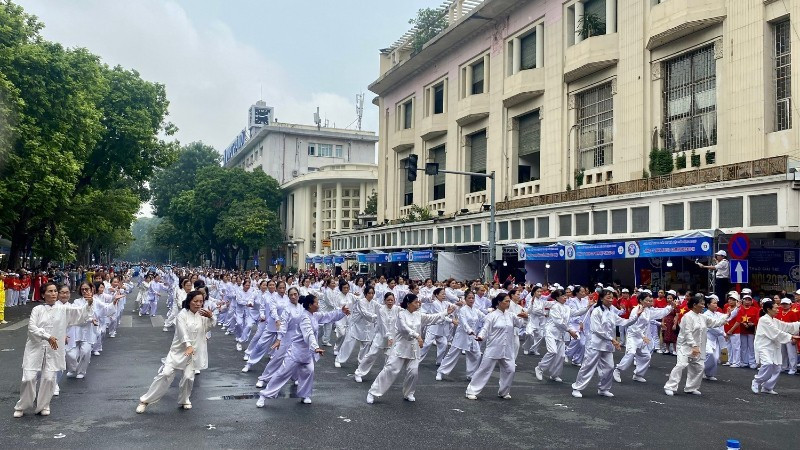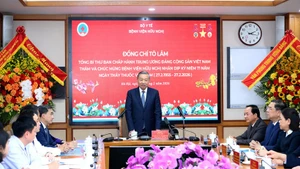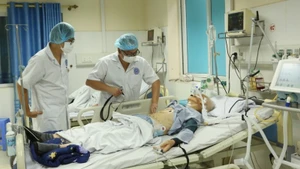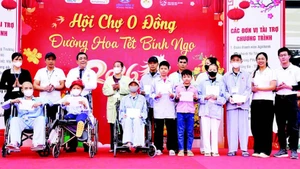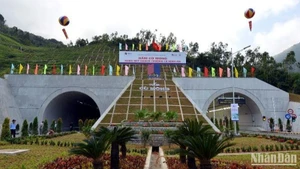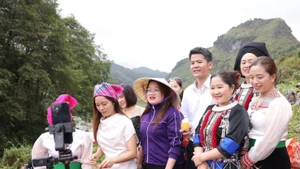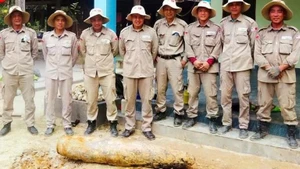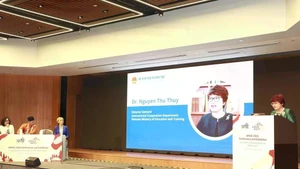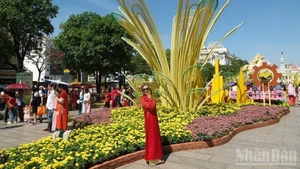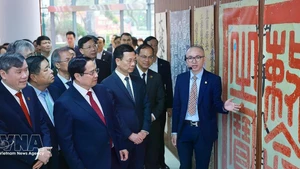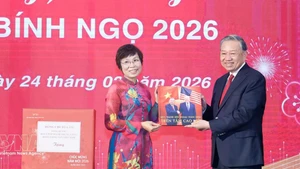According to statistics, Viet Nam has over 14.3 million elderly people, accounting for nearly 13% of the population. Over the years, the Party and State have consistently paid attention to the elderly, issuing many policies to care for the elderly. The Law on the Elderly, promulgated in 2009, and other related policies have created a legal framework for supporting and empowering this group.
Resolution No. 72-NQ/TW on breakthrough measures to enhance protection and improvement of people’s health, issued by the Politburo on September 9, 2025, states that each centrally-run province or city must have at least one geriatric hospital or ensure that general hospitals include a dedicated geriatric department.
In addition, elderly care institutions continue to improve rehabilitation services and strengthen coordination between healthcare facilities and elderly care centres. This is an important direction, opening opportunities to improve healthcare quality while meeting the growing needs of the elderly in the new period.
However, due to both objective and subjective factors, the elderly still face significant health challenges. Statistics from the Ministry of Health in 2024 show that more than 70% of elderly people suffer from an average of three or more chronic diseases, such as dementia, frailty syndrome, cardiovascular disease, hypertension, diabetes, and musculoskeletal degeneration.
Eye diseases that cause blindness and visual impairment remain particularly prevalent, with cataracts accounting for up to 74% of blindness cases, followed by corneal scarring from trachoma and age-related macular degeneration.
The theme of this year’s Action Month for Vietnamese Elderly demonstrates a strong commitment to caring for, appreciating, and honouring the elderly. It affirms that older persons are a great source of intellect, experience, and morality, accompanying the nation in its journey of integration and development. They are the “great shade trees” of moral example, intellect, and experience in the cause of national construction and defence.
According to Standing Deputy Minister of Health Vu Manh Ha, the theme of this year’s Action Month for Vietnamese Elderly demonstrates a strong commitment to caring for, appreciating, and honouring the elderly. It affirms that older persons are a great source of intellect, experience, and morality, and are accompanying the nation in its journey of integration and development. They are the “great shade trees” of moral example, intellect, and experience in the cause of national construction and defence.
Elderly health care needs to be placed at the centre of national health policy. In the health sector’s development strategy in the coming time, the leaders of the Ministry of Health have affirmed that healthcare for the elderly will remain a leading priority in the national strategy for people’s health protection, care, and improvement. The Ministry of Health has directed healthcare facilities from central to local levels to enhance examination, screening, diagnosis, and timely treatment of common elderly diseases, particularly for those living in remote, mountainous, border, island, and ethnic minority-inhabited areas.
At the launch ceremony of the Action Month for Vietnamese Elderly, Do Van Chien, Politburo Member, Secretary of the Party Central Committee, and President of the Viet Nam Fatherland Front Central Committee, asked all levels, sectors, and the whole society to pay greater attention to elderly affairs, from perfecting policies, laws, digital transformation and green transformation, to startups and job creation.
He emphasised that the issue of population aging and super-aging population requires attention to quality of life, health, inter-generational relationships, and the ability of society to adapt to population aging along with sustainable solutions.
Party committees, authorities, ministries, sectors, organisations, and individuals are encouraged to review and assess the implementation of policies and laws on the elderly. In the immediate term, efforts should focus on effectively realising the Prime Minister’s Decision No. 383/QD-TTg approving the National Strategy on the Elderly to 2035, with a vision to 2045; and the Prime Minister’s Decision No. 379/QD-TTg approving the project on “Elderly Participation in Promoting Digital Transformation, Green Transformation, Start-ups, and Job Creation.”
Meanwhile, the Viet Nam Association of the Elderly should be paid attention and created conditions to implement the directive of the Politburo and the Viet Nam Fatherland Front on establishing a unified three-tier association structure (central–provincial–communal levels). This aims to strengthen unity, protect the legitimate rights and interests of the elderly, and enable them to continue contributing to the cause of the national construction and defence in the era of national rise.
On the Government’s side, Deputy Prime Minister Le Thanh Long has directed levels and sectors to carry out solutions to achieve the goals set in Resolution No. 72-NQ/TW. These include that 60% of people at retirement age receiving monthly pensions, social insurance, or retirement allowances, increasing average life expectancy to around 75 years, and extending healthy life expectancy to at least 68 years.
